Driving under the influence (DUI) is a common criminal offense. Not only is it a common criminal mistake to make, but it is also a mistake that people tend to make more than one time.
Drunk driving charges have some of the highest recidivism rates, sometimes because the practice of impaired driving is a result of untreated alcohol addiction. Once a person has a single DUI conviction, they are at risk of second and third offenses.
To reduce recidivism rates and incentivize drivers to commit to sober living and better decision-making after a DUI conviction, South Dakota created a 24/7 Sobriety Program for convicted DUI offenders. How does the 24/7 Program work?
Those convicted of impaired driving face random or constant testing
The 24/7 Sobriety Program’s goal is to keep those with a history of impaired driving from getting drunk and then getting behind the wheel. Discouraging the over-consumption of alcohol is the strategy the program uses.
Drivers convicted of a DUI may have to submit to daily chemical testing to show that they became and remain sober. In some cases, a person with a DUI conviction must perform two chemical breath tests a day. Other times, they have to wear a bracelet that continually monitors their blood alcohol level.
Failing a test or skipping one means swift punishment. People usually have to spend a few days in jail and then can continue their participation in the 24/7 Sobriety Program. The program is effective at temporarily deterring drivers from drinking, with about 74% of participants avoiding any failed test or evidence that they tampered with equipment to avoid failing a test.
Avoiding a conviction can keep you out of this program
Gaining access to the 24/7 Program is just one example of why pleading guilty to a DUI offense may not be the best decision for your situation. A DUI attorney can discuss alternative sentencing options with you, including the 24/7 Program or a suspended imposition. Everyone is better than the worst mistake they make, and the law gives people a path to change their habits and move forward with their lives.
